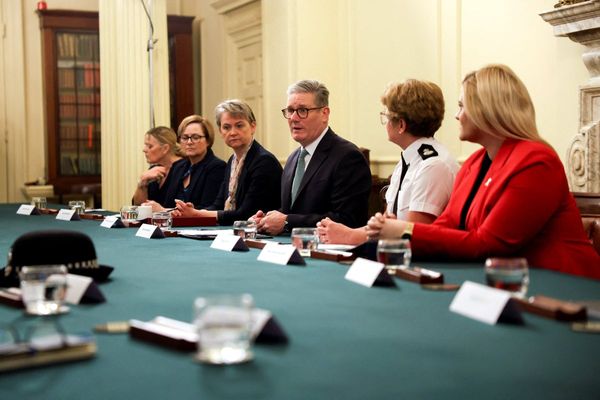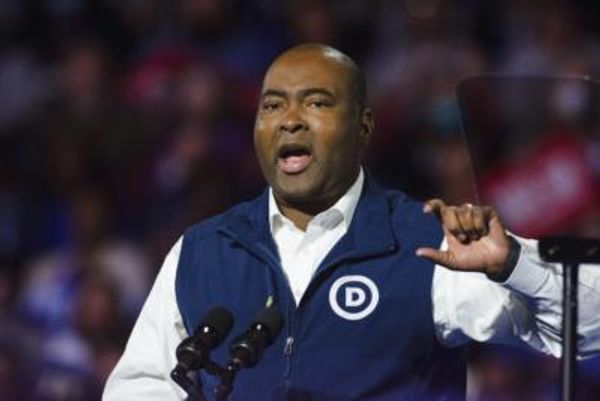NASHUA, N.H. _ Pete Buttigieg reiterated his declaration of victory. Bernie Sanders' campaign heralded their vote total. Joe Biden said he'd walk away with delegates. And Elizabeth Warren attempted to lump herself into a three-way race that excluded the former vice president.
The dark cloud hanging over the Iowa caucuses morphed into a hazy fog in New Hampshire, as the 2020 Democratic presidential candidates grappled with how to create momentum heading into the increasingly critical first-in-the-nation primary next week after the Iowa caucuses failed to produce a clear-cut winner.
"I know a few people who were waiting to see what happens in Iowa because they thought it might provide some clarity in the race," said Kathy Sullivan, a former New Hampshire Democratic Party chairwoman who endorsed Warren. "How'd that work out?"
Almost 24 hours after the caucuses closed, an Iowa victor remained unknown. Late Tuesday, the Iowa Democratic Party released results from 62% of precincts, showing Buttigieg and Sanders vying for the lead, separated by just a few thousand votes, with Warren in third and Biden stuck in fourth place. Whoever the ultimate winner is will be deprived of the true spoils of victory, just as the loser may have been spared the stinging embarrassment of defeat.
There was no telling when the outstanding totals would be released to the public. The mystery around the results lingered throughout the day as campaigns carefully calibrated how to address such an unprecedented scenario.
Buttigieg, who began his day in Manchester, noticeably tamped down his appearance of a triumph at a morning event inside a theatre. He didn't specifically mention Iowa in his morning remarks. Only at the closing of his speech did the former South Bend, Ind. mayor reference having "had the chance to quiet those questions about whether we belonged in this effort in the first place."
By time he took the stage in Laconia in the evening, he doubled down on his claim of victory.
"Official verified caucus results are coming in from the state of Iowa," Buttigieg told his audience. "They show our campaign in first place."
The partial results indicated a disappointing performance from Biden, who campaigned aggressively down the stretch in Iowa and had hoped to capitalize on his popularity with older, rural Democrats familiar with his 40-year-career. But even before they knew the final results of the caucuses, many of his supporters were already arguing he was still on track to win the Democratic nomination.
"I didn't have any expectation that he would be first or second," said Sen. Bob Casey of Pennsylvania, who has endorsed Biden. "Where he is in the final tally, or at least what we now know of the beginnings of the final tally, is kind of where I expected him to be."
Casey added that New Hampshire would be a "difficult" state for Biden to win, citing the fact Sanders and Warren represented neighboring states, but that he thought the former vice president would still be competitive there.
Other Biden backers were even more dismissive of Iowa.
"What happened last night is nothing happened," said Florida attorney John Morgan, a Biden donor. "When I woke up this morning, everybody had declared victory. I kept reading my paper here to see if Kamala Harris had declared victory, too."
Morgan, who hosted a fundraiser last May in his Orlando home that raised $1.7 million for Biden's campaign, said he still thinks the former vice president will pick up steam as the race progresses. It's an argument Biden's team has made from the beginning, pointing out that he was poised to earn greater support in the more diverse states that vote later in February, Nevada and South Carolina.
"I think in the long run he's going to be just fine," Casey said. "Obviously, the electorate changes a lot when you get outside some of these states over the next few weeks."
Still, a lackluster result in New Hampshire could damage a campaign like Biden's that entered the year with less cash in the bank than his top rivals.
"If you lose two contests in a row, or underperform two contests in a row, that can make it harder to raise money to go forward," Sullivan said.
She added that in her view, many New Hampshire voters remain undecided even this late in the primary. And on the ground in the state Tuesday, the Biden campaign sought to start winning them over.
In Nashua, he claimed to have had a "good night in Iowa."
"We think we're going to come out of there really doing well, but you know, be careful what you say because it's not done yet," he said inside a gymnasium. "So we don't know precisely how many delegates we have, or I'm going to get, but I feel really good about getting more than our fair share."
He then took aim at the feasibility and cost of the Medicare for All plan championed by Sanders, who leads in New Hampshire polls.
"Bernie's talked about the single-payer Medicare system for health care system ... for 30 years now. Hasn't moved it an inch," Biden said. "It's not going anywhere. The speaker of the House isn't for it. Most Democrats in Congress are not for it. So how's it going to pass? How's it going to move? How's it going to get done?"
But on the rope line on his way out of the event, Biden stopped short of saying he'd accept the results from the Iowa Democratic Party.
For her part, Warren seemed stuck in the middle. She was unable to declare victory, but attempted to lump herself in with Sanders and Buttigieg.
"It's a tight three-way race at the top," Warren said in Keene. "We know the three of us will be dividing up most of the delegates coming out of Iowa. I'm feeling good."
New Hampshire voters who spoke to McClatchy dismissed the possibility of Iowa influencing their decision, even if Biden ended up finishing fourth or worse.
"It's an item for the media. What is important is he's going to get to South Carolina and he's going to do well," said Harold Solomon, a Nashua resident backing Biden on the basis of electability. "Who can win in the battleground states? Joe Biden. Blue collar people are going to vote for him."
Anna Pappalardo, a recent transplant from Nevada to New Hampshire, said she was still deciding between Warren and Biden, but that final tallies out of Iowa wouldn't move her.
"I don't think it means that much," she said.
"You shouldn't base your decision on another state," chimed in her husband, Al, a Biden supporter.
The Iowa muddle raises the stakes even further for the New Hampshire primary. And the candidates will have a major opportunity to win over some of those undecided voters at the next debate.
"The New Hampshire debate Friday is going to be one of the most important primary debates in history," said Colin Van Ostern, the Democratic Party's nominee for governor in 2016. "If the results of Iowa are what everyone thinks, it would have been deadly for Biden and (Amy) Klobuchar if that was clear last night, But given the debacle, that damage is now downgraded to 'painful.'"







